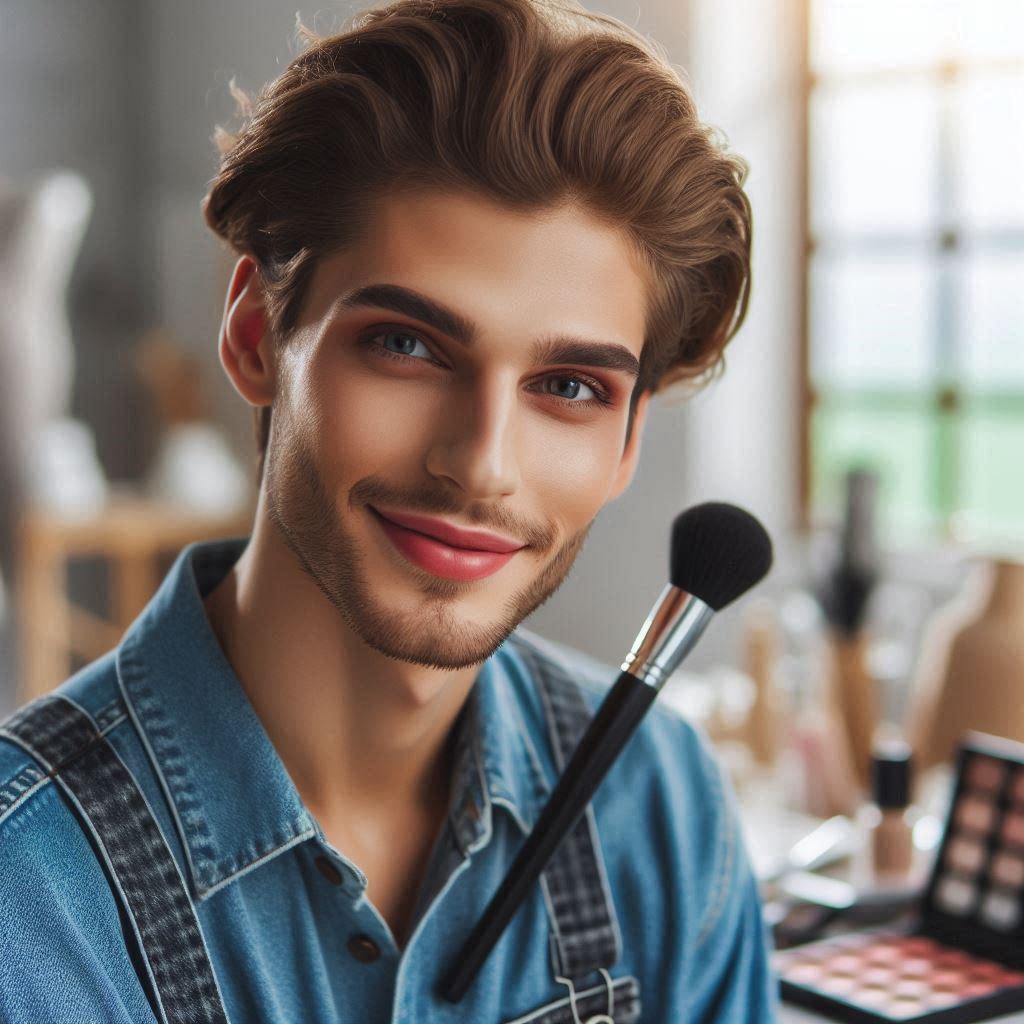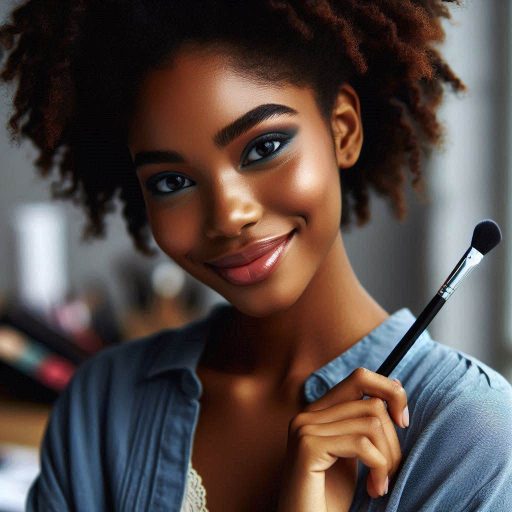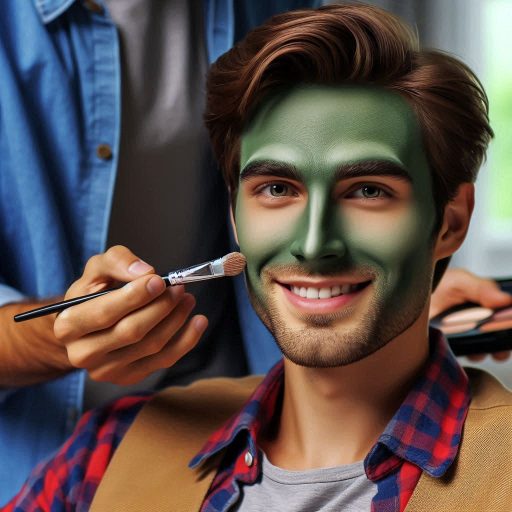Introduction
Sustainable practices in makeup artistry have gained significant importance in recent years.
Consumers are increasingly aware of environmental impacts, pushing the beauty industry to adopt greener approaches.
Sustainable makeup practices focus on reducing waste, using eco-friendly products, and minimizing harm to the environment.
By embracing these practices, makeup artists contribute to protecting the planet while meeting client demands.
Sustainable practices in makeup artistry include choosing cruelty-free, organic, and vegan products that avoid harmful chemicals.
Packaging also plays a key role in sustainability, with many artists opting for recyclable or refillable containers.
Reducing single-use plastic and promoting reusable tools like washable sponges and brushes further contribute to sustainability.
Ethical sourcing of ingredients, such as using fair-trade products, ensures that sustainable practices extend beyond the artist’s studio.
By adopting these methods, makeup artists create a positive impact on the environment and promote healthier beauty standards.
Sustainable artistry is not only a growing trend but also a necessity in preserving natural resources for future generations.
Additionally, these practices resonate with clients who prioritize eco-conscious choices in their beauty routines.
Embracing sustainability enhances the reputation of makeup artists, aligning their work with values of responsibility and care for the planet.
Sustainable practices in makeup artistry ultimately ensure that beauty can be both glamorous and environmentally responsible.
Use of Eco-Friendly and Cruelty-Free Products
In the world of makeup artistry, it is essential to be mindful of the products being used on the skin as well as their impact on the environment.
Traditional makeup products often contain harmful chemicals that can be detrimental to both our skin and the planet.
The Harmful Effects of Traditional Makeup Products
Traditional makeup products typically contain chemicals such as parabens, phthalates, and synthetic fragrances that can cause skin irritation, allergies, and long-term health issues.
Many of these ingredients are also harmful to the environment, as they can leach into the soil and water sources, leading to pollution and harm to wildlife.
Additionally, the production and disposal of traditional makeup products often contribute to greenhouse gas emissions and plastic waste, further exacerbating environmental problems.
Eco-Friendly and Cruelty-Free Makeup Brands
Some popular eco-friendly and cruelty-free makeup brands include:
- 100% Pure
- RMS Beauty
- Ilia Beauty
- Jane Iredale
- EcoTools
Benefits of Using Eco-Friendly Products
- Environmental benefits: By choosing eco-friendly and cruelty-free makeup products, you are reducing your carbon footprint and supporting sustainable practices in the beauty industry.
- Skin benefits: Eco-friendly products are free from harsh chemicals, making them suitable for sensitive skin and reducing the risk of irritation and breakouts.
- Ethical benefits: Opting for cruelty-free products ensures that no animals were harmed in the testing or production of the makeup, aligning with ethical values.
Read: How to Balance Creativity and Client Expectations
Transform Your Career Today
Unlock a personalized career strategy that drives real results. Get tailored advice and a roadmap designed just for you.
Start NowMinimizing waste
When it comes to sustainable practices in makeup artistry, one of the key aspects to focus on is minimizing waste.
This involves being mindful of the packaging waste generated by makeup products and finding ways to reduce, recycle, and repurpose it.
Tips on reducing packaging waste
- Opt for products with minimal or recyclable packaging
- Choose products with refillable options
- Buy in bulk or in larger sizes to reduce individual packaging
- Avoid single-use makeup wipes and opt for reusable alternatives
Ways to recycle and repurpose makeup containers
- Clean and reuse empty containers for DIY makeup projects
- Donate gently used products to beauty recycling programs
- Participate in beauty brand recycling programs for empty containers
- Get creative and repurpose containers as storage for small items
Importance of using refillable makeup products
- Reduces the need for frequent repurchasing, leading to less waste
- Encourages sustainable consumption habits in the beauty industry
- Allows for customization and versatility in makeup routines
- Supports brands with eco-friendly initiatives and practices
By implementing these practices, makeup artists can contribute to a more sustainable beauty industry and minimize their environmental footprint.
It’s crucial to be conscious of the impact our choices have and strive to make a positive difference through simple yet impactful actions.
Start small, but aim big in creating a more sustainable future for makeup artistry.
Read: The Impact of Digital Art on Makeup Design
Sustainable makeup tools
When it comes to sustainable practices in makeup artistry, using eco-friendly makeup tools is essential.
Let’s explore how reusable makeup tools can benefit both the environment and your makeup routine.
Introduction to reusable makeup tools
Reusable makeup tools are products that can be used multiple times without needing to be disposed of after each use.
These tools are typically made from sustainable materials such as bamboo, recycled plastics, or metal.
Switching to reusable tools allows you to reduce your carbon footprint and minimize the amount of waste generated from your makeup routine.
Additionally, reusable tools are often more durable and long-lasting than single-use alternatives.
Benefits of using sustainable makeup tools
- Reduce waste: By opting for reusable tools, you can significantly reduce the amount of plastic and other materials that end up in landfills.
- Eco-friendly materials: Sustainable makeup tools are often made from environmentally friendly materials, making them a better choice for the planet.
- Durable and long-lasting: Reusable tools are designed to withstand multiple uses, saving you money in the long run and reducing the need for frequent replacements.
- Healthier for your skin: Eco-friendly makeup tools are less likely to contain harmful chemicals or toxins that could irritate your skin.
Recommendations for eco-friendly makeup brushes and applicators
There are many brands that offer high-quality, sustainable makeup brushes and applicators.
Here are some recommendations for eco-friendly options to consider:
- Ecotools: Ecotools is a popular brand known for its affordable and eco-friendly makeup brushes made from recycled materials.
- Real Techniques: Real Techniques offers a wide range of cruelty-free makeup brushes that are vegan and made with sustainable materials.
- Beautyblender: Beautyblender is a well-known brand that offers reusable makeup sponges made from safe and eco-friendly materials.
- ILIA Beauty: ILIA Beauty offers a selection of sustainable makeup brushes and tools made with recycled aluminum and renewable resources.
By incorporating reusable and eco-friendly makeup tools into your beauty routine, you can make a positive impact on the environment while still achieving a flawless makeup look.
It’s important to remember that small changes in your routine can lead to significant benefits for the planet in the long run.
Read: Multimedia Artist Salary: What to Expect in 2024

DIY natural makeup recipes
Creating your own makeup products at home can be a fun and rewarding experience.
Not only do you have full control over the ingredients you use, but you can also customize the products to suit your preferences and skin type.
Here are some simple recipes for homemade makeup products:
Transform Your Career Today
Unlock a personalized career strategy that drives real results. Get tailored advice and a roadmap designed just for you.
Start NowHomemade Lip Balm
Ingredients
- 1 tablespoon coconut oil
- 1 tablespoon shea butter
- 1 teaspoon beeswax pellets
- 1-2 drops of essential oil for flavor (optional)
Instructions
- Melt coconut oil, shea butter, and beeswax pellets in a double boiler.
- Once melted, remove from heat and add essential oil if desired.
- Pour mixture into lip balm tubes or small jars and let it cool and solidify.
All-Natural Blush
Ingredients
- 1 tablespoon arrowroot powder
- 1-2 teaspoons beetroot powder (adjust to desired shade)
- 1-2 drops of jojoba oil for consistency
Instructions
- Combine arrowroot powder and beetroot powder in a small bowl.
- Add jojoba oil slowly until you reach the desired consistency.
- Store in a clean container and apply using a makeup brush.
DIY Mascara
Ingredients
- 1 teaspoon coconut oil
- 2 teaspoons aloe vera gel
- 1/2 teaspoon beeswax pellets
- 1-2 capsules activated charcoal for color
Instructions
- Melt coconut oil, aloe vera gel, and beeswax pellets in a double boiler.
- Once melted, add activated charcoal until desired color is achieved.
- Pour into a clean mascara tube and let it cool before use.
Using natural ingredients in makeup products not only provides a safer alternative to conventional products but also offers various benefits for your skin:
- Natural ingredients are less likely to cause skin irritations or allergies.
- They are free from harsh chemicals and toxins that can harm your skin.
- Some natural ingredients have skincare benefits, such as moisturizing properties.
Customizing your own makeup products allows you to tailor them to your specific skin concerns and preferences.
Read: Collaborating with Other Artists: Tips for Success
Proper disposal of makeup products
When it comes to makeup products, proper disposal is crucial for both personal health and environmental sustainability.
How to properly dispose of expired makeup
Expired makeup can harbor bacteria and cause skin irritations if not disposed of correctly.
To ensure your safety, always check the expiration dates on your products and follow these guidelines:
- Throw away mascara and liquid eyeliner after three months.
- Dispose of cream and liquid foundations after six months to one year.
- Powder products like eyeshadows and blushes can last up to two years.
- Lipsticks and lip glosses should be replaced every one to two years.
The environmental impact of improper makeup disposal
Improper disposal of makeup products can have significant environmental consequences.
When makeup products end up in landfills, they can leach harmful chemicals into the soil and water supply, polluting the environment.
Recycling or donating unused makeup products
To minimize waste and promote sustainability, consider recycling or donating your unused or lightly used makeup products.
Here are some suggestions on how to do so:
- Check with local recycling programs if certain makeup containers can be recycled.
- Donate gently used makeup products to shelters or organizations that support individuals in need.
- Host a makeup swap party with friends to exchange products that you no longer use.
By following proper disposal methods and exploring recycling or donation options, makeup artists can contribute to a more sustainable beauty industry.
Supporting sustainable makeup artists and brands
Choosing makeup artists and brands that prioritize sustainability is crucial for ensuring that the beauty industry is moving towards a more eco-friendly future.
By supporting these individuals and companies, you are contributing to a positive change in the industry.
Here are some ways to research and support sustainable makeup artists as well as the benefits of investing in sustainable makeup brands.
Importance of choosing makeup artists and brands that prioritize sustainability
- Reducing environmental impact: Sustainable makeup artists and brands use eco-friendly packaging and ingredients, thus minimizing waste and pollution.
- Promoting ethical practices: By choosing sustainable artists and brands, you are supporting fair labor practices and animal-friendly products.
- Setting an example: Supporting sustainable makeup artists and brands encourages others in the industry to follow suit, creating a ripple effect for positive change.
Ways to research and support sustainable makeup artists
- Check certifications: Look for certifications like cruelty-free, vegan, or organic to ensure that the artist or brand aligns with your values.
- Read reviews: Look for reviews from other consumers who have used the artist’s services or brands’ products to gauge their sustainability practices.
- Follow on social media: Many sustainable makeup artists and brands share their eco-friendly practices on social media platforms, making it easier for you to support them.
Benefits of investing in sustainable makeup brands
- Healthier for your skin: Sustainable makeup brands often use natural and organic ingredients that are gentler on the skin and free from harmful chemicals.
- Supporting the environment: By investing in sustainable makeup brands, you are supporting practices that reduce greenhouse gas emissions and promote biodiversity.
- Long-term cost savings: While sustainable makeup brands may have a higher upfront cost, they often last longer due to higher quality ingredients, saving you money in the long run.
Overall, supporting sustainable makeup artists and brands is essential for creating a more eco-conscious beauty industry.
By making informed choices and investing in sustainable practices, you can contribute to a more sustainable future for the planet and future generations.
Education and Advocacy
Education and advocacy play a crucial role in promoting sustainable practices in makeup artistry.
By raising awareness and providing resources, individuals can make informed decisions that benefit the environment and the beauty industry as a whole.
Encouraging others to adopt sustainable practices in makeup artistry
One of the most effective ways to promote sustainability in makeup artistry is by encouraging others to adopt eco-friendly practices.
This can be done through social media, workshops, and collaborations with like-minded artists.
Transform Your Career Today
Unlock a personalized career strategy that drives real results. Get tailored advice and a roadmap designed just for you.
Start NowBy sharing tips, techniques, and products that are environmentally friendly, artists can inspire their peers to make more sustainable choices.
Sharing resources for learning more about sustainable makeup artistry
There are a variety of resources available for individuals looking to learn more about sustainable makeup artistry.
Online courses, workshops, and seminars provide valuable information on eco-friendly products, techniques, and trends in the industry.
By sharing these resources with others, artists can help promote a more sustainable approach to makeup artistry.
The role of advocacy in promoting sustainability in the beauty industry
Advocacy plays a critical role in promoting sustainability in the beauty industry.
By advocating for policies and practices that prioritize environmental conservation and ethical production, individuals can help shape the future of the industry.
By engaging in discussions with industry leaders, policymakers, and consumers, artists can drive positive change and create a more sustainable beauty industry for future generations.
Explore Further: Portfolio Tips for Aspiring Exhibition Designers
Conclusion
Sustainable practices in makeup artistry are crucial for reducing waste and protecting the environment.
By using eco-friendly and cruelty-free products, makeup artists can contribute to a more sustainable industry.
I encourage readers to start implementing sustainable practices in their makeup routines by opting for biodegradable packaging, reusable tools, and natural ingredients.
Small changes can make a big difference in reducing our environmental impact.
It is essential to support eco-friendly and cruelty-free makeup brands that prioritize sustainability.
By choosing to purchase products from these brands, we can drive positive change in the beauty industry and promote a more ethical approach to makeup artistry.
[E-Books for Sale]
The Big Book of 500 High-Paying Jobs in America: Unlock Your Earning Potential
$19.99 • 500 High-Paying Jobs • 330 pages
Explore 500 high-paying jobs in America and learn how to boost your career, earn more, and achieve success!
See All 500 High-Paying Jobs of this E-Book
1001 Professions Without a Degree: High-Paying American Jobs You Can Start Now
$19.99 • 1001 Professions Without a Degree • 174 pages
Discover 1001 high-paying jobs without a degree! Unlock career tips, skills, and success strategies for just $19.99!




